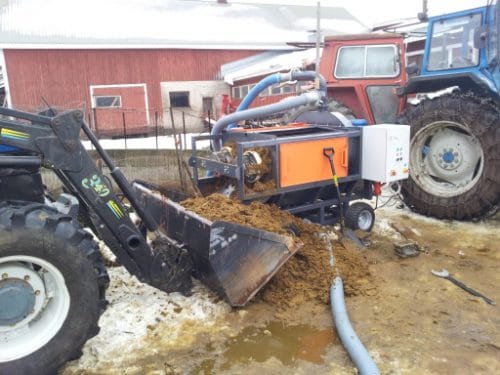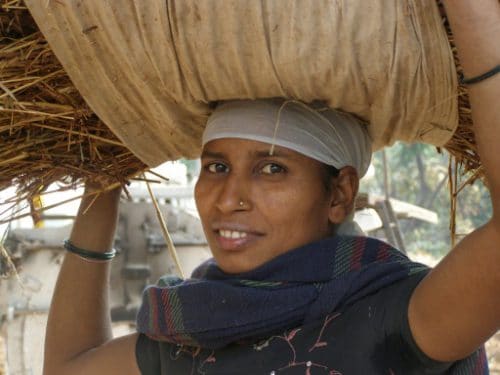Renewable energy sources are at the heart of global energy transformation and climate change mitigation. Renewables enable shifting towards more localised energy and bringing the power source closer to people.
Sustainable development always includes the social aspect. We often hear and read about energy systems from “upper level” point of view: by which I mean politics, policy, and technology. I want to talk about what energy means to people.
There are many issues that sustainable energy production provides solutions for. One of the most important things is that sustainable, off-grid energy sources are an opportunity to better the lives of billions of people in the world. Sustainable energy production can be defined as providing clean energy to everyone while preserving the nature’s resources to future generations.
UN sustainable development goals and sustainable energy revolution
Perhaps the UN sustainable Development Goals (UN, 2015) have impacted on the start of discussion of social impacts (such as gender equality, health care and economic growth as well as participation and social acceptability) in the organisations of the energy sector. There is more to the renewable energy than clean, affordable energy, althought that alone is a major issue to address. Renewables also relate to other sustainable development goals. Reading through the goals, nearly all of them can be related to sustainable energy production directly or indirectly. (Read about the goals from: https://sustainabledevelopment.un.org/?menu=1300)
Direct connection can be made with the UN sustainability goals: Clean and affordable energy and Climate action. There are also many indirect connections. Among other things, renewable, off-grid energy systems enable establishing adequate health care in rural areas. (UN goal good health & wellbeing)
Wind power sector also strongly relates to job creation for millions of people benefiting their economic and social situation. (UN goals: No poverty and decent work and economic growth). The goal: Industry, innovation, and infrastructure, as well as land use issues are all about modern renewable energy production. To gain reward from the renewable energy revolution, communication and participatory involvement with local communities are essential. We have learnt through experience and research that wind power has a fairly good reputation but finds resistance in the local level for various reasons. For example land issues relate to reducing inequalities as well as participatory involvement to transparency and building just, strong institutions. Social license to operate is imperative in success of mutual goals.
Sustainability links all sectors in circular economy
We are beginning to understand what environmental scientists have been telling us for decades: Everything in sustainability, like in the ecosystem, is linked. All industries need each other in achieving sustainability. Decarbonising economies can be surprisingly cost effective (Irena, 2018; Sitra, 2018) and it allows us to create and innovate services and products, build new kind of infrastructure and create working methods, services and products from a more humane perspective.
The trend in most European countries now is to bring food production in the urban habitat and closer to people.There are rooftop gardens, guerilla gardens in the cities and In Rotterdam, plans for a floating dairy farm are in progress. (Business Insider Nordic, 2018) The trend of localisation is also happening in the energy sector mainly due to the growing demand of energy. Localised energy production means cheaper energy for more people. It also spells independency from imported energy and fossil fuels.
We need open dialog and synergy

We are starting to think about the use and production of energy differently. Wind energy sector, and renewable energy on the whole, plays an important role achieving targets set in 2030 paths by many a government and organisation. To mention just a couple of examples: low carbon building and farming present many opportunities for renewable energy sector in the circular economy system.

In the circular economy system, finding ways to produce energy starts from the idea of saving energy (the need to produce as little as possible) and how the energy is produced. A farm could produce the energy it needs from the biomass it also produces – or the cattle produces, and from another surplus biomass and residue on the farm. The residues from the biomass energy production can further be used as fertiliser on the fields. Sounds fairly simple. However, we need systems that not only make this possible, but make it profitable or at least cost effective. To benefit from these fantastic innovations, we need to utilise different methods. On the farm, for example the separator or the biogas putrefaction could be operated with wind power instead of oil or wood. In achieving a wider accessibility for this kind of combination systems, cooperation across sectors is needed – even in the user experience level.
Synergy, dialog and cooperation are needed across all sectors to achieve energy systems that are cost effective, lead to benefits for everyone, both in the remote areas of the world as well as the growing cities of the technologized world, creating value for the future.

references:
Business Insider Nordic, 2018, https://nordic.businessinsider.com/world-first-first-floating-dairy-farm-rotterdam-2018-9?r=US&IR=T Cited: 17.12.2018
IRENA at SIEW: Socio-Economic Benefits of a Sustainable Energy Future in Southeast Asia. (2018, October 25). Retrieved from https://www.irena.org/newsroom/articles/2018/Oct/IRENA-at-SIEW-Socio-Economic-Benefits-of-a-Sustainable-Energy-Future-in-Southeast-Asia cited:16.12.2018
Milston, 2016,
http://www.milston.fi/en/ ,cited:18.12.2018
Ministry of Environment:
http://www.ym.fi/fi-FI/Ministerio/Tavoitteet_ja_tulokset/Strategia_2030



